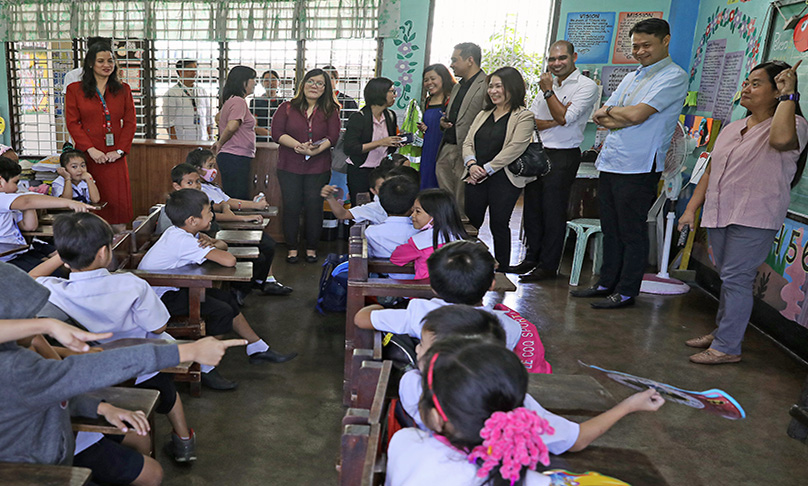Senator Win Gatchalian has filed a resolution seeking an inquiry on the implementation of the “Enhanced Basic Education Act of 2013” or the K to 12 Law.

According to Gatchalian, the inquiry’s findings will craft policy recommendations and complementary laws to ensure the K-12 program’s effective implementation. The lawmaker said that the inquiry aims to support the Department of Education’s (DepEd) shift of focus from “access” to “quality” education, which is central to its national reform plan “Sulong EduKalidad.”
“Isang mahalagang reporma ang K-12 sa ating sistema ng edukasyon upang siguruhin ang kahandaan ng ating mga kabataan para sa ating mga industriya. Ngunit nitong mga nakaraang taon, nakita natin ang iba’t ibang mga hamong kinakaharap ng programa. Nais natin itong matugunan upang patuloy nating maiangat ang kalidad ng edukasyon sa bansa,” said Gatchalian, Chairman of the Senate Committee on Basic Education, Arts and Culture.
Part of the challenges hounding K-12 is students’ learning outcomes, including the declining National Achievement Test (NAT) scores. In the 2018 NAT, Grade 6 and Grade 10 students garnered mean percentage scores of 37.44 and 44.59 respectively, both fall under the “low mastery” level.
The poor NAT performance is also reflected in the 2018 results of the Programme for International Student Assessment (PISA), a global triennial survey by the Organisation for Economic Co-operation and Development which measures students’ proficiency in Reading Comprehension, Science, and Mathematics. The said survey showed that out of 79 countries, the Philippines ranked lowest in Reading Comprehension and second lowest in both Science and Mathematics.
Another challenge is how K-12 is living up to its promise of producing employable graduates. A 2018 survey of 500 companies by online portal JobStreet revealed that only 24 percent of employers are willing to hire K-12 graduates. Most employers still prefer candidates with college degrees.
Gatchalian added that the inquiry should also look closely at the readiness and capacity of schools to implement the K-12 program, which allows senior high school students to choose specializations such as academic, technical-vocational-
A quantitative service delivery study conducted by the World Bank shows that teachers were also ill-prepared for senior high school as evidenced by their low performance in terms of knowledge of subject matter using the K to 12 curriculum.


